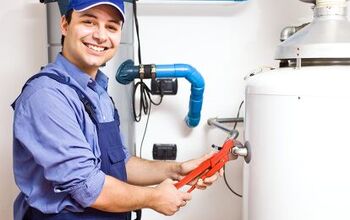Can You Recycle Screws? (Find Out Now!)

Congratulations on finishing your DIY building project. Now that you’re done, it’s time to put away all the tools. What to do with all those old screws is the question of the day, so can you recycle screws?
Screws are 100% recyclable, even if they are bent, broken, and rusted. Screws are too small for single-sort recycling centers. Don’t put them in a recycling bin. Put them in the scrap metal bin at the local transfer station. Donate, gift, or upcycle old screws. Make garden sculptures, hand weights, metal crosses, calendars, key racks, vases, and name signs.
Let’s take a look at the types of metals that can be recycled and how to best recycle your old screws.
How Do You Dispose of Old Screws?
Having too many of the wrong style and size of screws takes up room in your garage. After every DIY improvement project, there is always a huge pile of old, rusted, bent screws. Screws are great, but they also tend to multiply like rabbits. There are a few ways that you can dispose of old screws.
Donate Them
Non-profit organizations that build homes for their community are always looking for materials. Your old screws make a great donation if they are still usable. Donate screws that are straight and haven’t been stripped at the head. Sort them by size and style, and put them in small plastic containers. Take them to a local non-profit.
Gift Them
Do you have a friend who is always getting into DIY projects? Your old screws will come in handy. Package them up, and give them as a gift.
Repurpose Them
Repurposing is a way to find new uses for old screws. Use them to make garden sculptures. Put them in empty plastic jugs for some hand weights. Make decorative crosses with wire. Make a calendar with screws on each day, and hang a token on today’s date. Get a bit creative, and you’ll be making key racks, vases, and name signs with your old screws in no time!
Recycle Them
Metals, such as those used for screws, can be recycled. In its new life, the metal is used for construction projects, vehicles, airplanes, and even cleaning industrial wastewater.
Throw Them Out
With so many ways to reuse old screws, throwing them out is a last option. Before you throw your old screws in the trash bin, though, make sure that they aren’t made with hazardous materials. If they are, you can’t just throw them in the trash bin. You’ll need to take them to a hazardous waste location in your community.
Can You Recycle Screws?
Screws are 100% recyclable. Most screws are made from steel, and this metal can be recycled. Stainless steel, titanium, brass, and aluminum are used for screws. All these metals can be recycled.
Can You Recycle Rusted Screws?
Yes. You can even recycle rusted screws. If you take the screws to a salvage yard, though, understand that you will be paid based on weight. Rusted screws weigh less than those in good shape. As a result, you may receive less for payment than expected.
Can I Put Metal Screws in the Recycling Bin?
Putting metal screws in your recycling bin is not a good idea. Don’t take them to a single-sort recycling center. They are too small and will disrupt the normal operations of the facility. Instead, take them to a local transfer station.
Staff at the transfer station sort through all types of recyclable and non-recyclable items. They will collect your screws and put them with other small metal items for recycling.
How is Metal Recycled?
First, metals are collected, sorted, and cleaned. Next, the metal is crushed and shredded. It is then fed into a furnace and melted. In the final step, the molten metal is poured into forms to make blocks or sheets that are sold to manufacturers.
Recycled metals have comparable strength to their non-recycled counterparts. Unfortunately, only 30% of all metals are recycled. Manufacturers are using more recycled metals, especially steel, so now is a great time to start recycling your metals.
What Metals Cannot Be Recycled?
Metal objects that can’t be recycled have more to do with substances that come in contact with the metal. For example, paint cans can’t be recycled because of the chemicals in the paint. The same holds true for propane tanks. Some metal parts that are used for electronics and vehicles cannot be recycled. They contain mercury and chemicals that disrupt the recycling process. It is best to check with your local recycling center to find out how to dispose of these items.
What Other Metal Fasteners Can Be Recycled?
Every type of metal fastener can be recycled. This includes nuts, bolts, nails, hinges, and washers. As with screws, take them to your local transfer station for sorting and cleaning.
Related Questions
What’s the best type of screw for a deck?
The best screws for building a deck is #10 that is 2 1/2” or 3 1/2” long. The screws are self-sinking and resistant to corrosion.
How do you straighten screws?
Put the screws in a vice. Use a pair of vice grips to straighten the screw. It’s OK to have some remaining ripples in the screw, but they should be small.
What is a wall anchor?
Drywall anchors are small pieces of plastic that are used to hang pictures and other heavy objects on a wall. The anchor fits into a drilled hole, and the feet of the anchor stabilize the item. Using a wall anchor lets you have something without needing a stud.
Conclusion
Metal is one of the most recyclable materials. Unfortunately, it is also one of the least recycled. Recycle your old screws by taking them to a local transfer station. Even bent and rusted screws can be recycled. You can also donate them, gift them, and repurpose them. With so many ways to use old screws, there really are few, if any, times when they need to go in the trash. While you’re gathering those old screws, including other types of fasteners, such as hinges, nails, bolts, washers, and nuts.
Related Guide

Jennifer L. Eggerton loves being hands-on, whether it's with a home DIY project, making repairs, re-decorating a room, or keeping life organized. She enjoys helping people by sharing her knowledge, insights, and experiences, as well as her lessons learned. In addition to her work as a writer, Jennifer is a Jeep® overlander, self-published author, and nature photographer who loves being outdoors.
More by Jennifer Eggerton



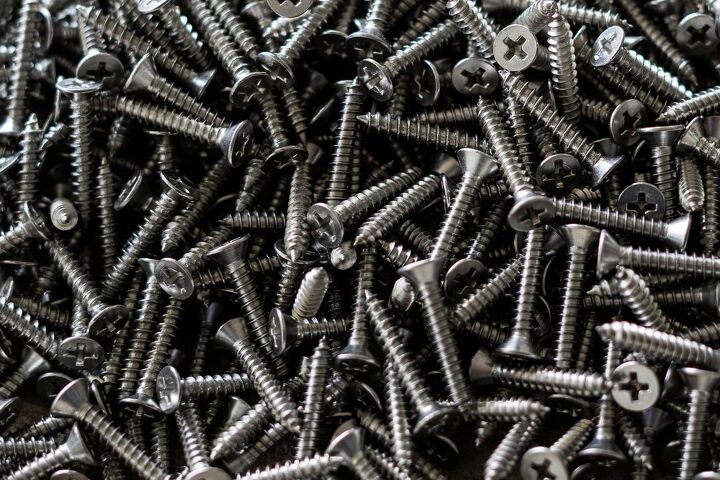






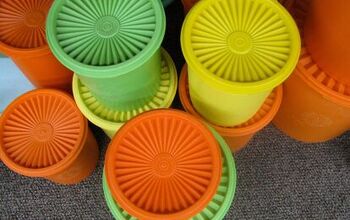
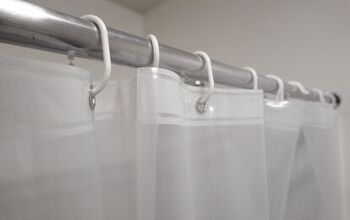
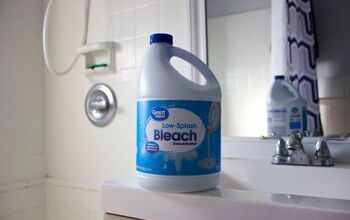
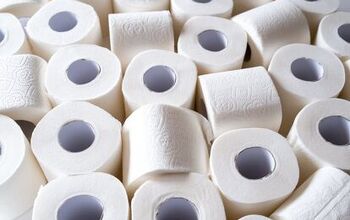
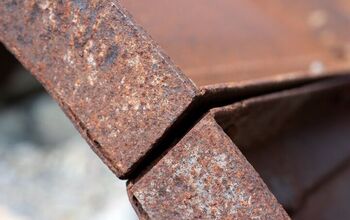



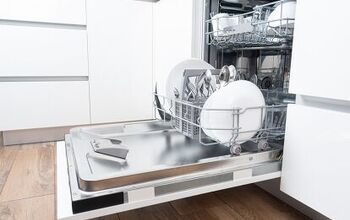
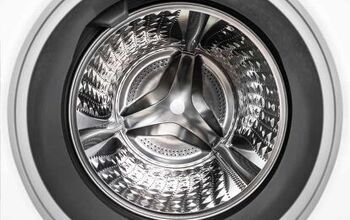

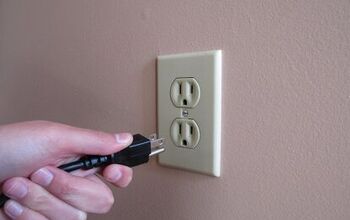
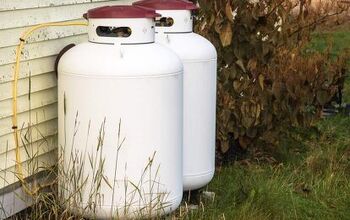
![Cost To Drill A Well [Pricing Per Foot & Cost By State]](https://cdn-fastly.upgradedhome.com/media/2023/07/31/9074980/cost-to-drill-a-well-pricing-per-foot-cost-by-state.jpg?size=350x220)
